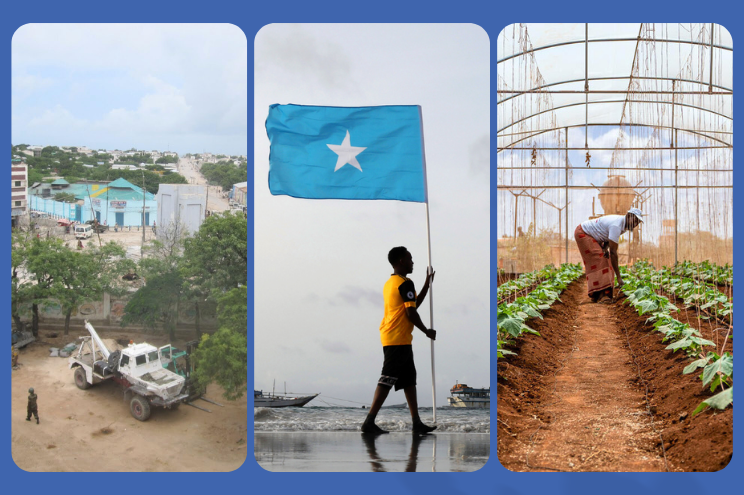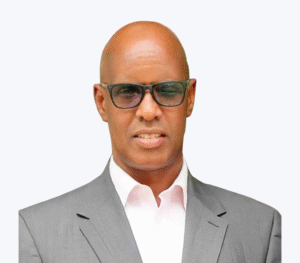
Share This
Facebook
Twitter

Somalia is no stranger to hardship. For over three decades, it has existed on the edge of collapse and recovery, conflict and calm, promise and loss. Yet beneath its fractured surface lies something powerful: a resilient, resourceful people navigating the wreckage of war with astonishing courage. As Somalia moves forward toward debt relief, federal reform, and greater international engagement, the nation must reckon with a truth often overlooked: it cannot rebuild itself without also healing its people. This is not only a story of politics and economics. it is a story of memory, grief, and the invisible cost of survival.
Recovery in a Landscape of Ruin
In recent years, Somalia has taken cautious but significant steps toward national renewal. The formation of a federal system in 2012 marked a turning point in the country’s long period of statelessness. Slowly, institutions have returned, budgets are being formulated, and infrastructure is under construction. Telecommunications have boomed. Mobile money is now used by over 70% of Somalis, allowing transactions in places where banks do not exist. Most cities such as Mogadishu have become hubs of informal innovation and entrepreneurship, sustained by remittances from the Somali diaspora which now contribute over $2 billion annually.
Despite this progress, the country remains profoundly fragile. Armed groups still control vast stretches of land, and in many rural areas, the authority of the state is symbolic at best. Over 3.8 million people remain displaced due to conflict or climate disasters. The poverty rate is estimated at 70%, and the reach of public services, especially healthcare and education, is uneven and unreliable. For most Somalis, life remains a daily negotiation with uncertainty.
And yet, in many ways, the most enduring damage is not physical. It is psychological. It is in the minds and hearts of people who have lived through decades of war and who have done so without ever being asked how it has affected them.
The Somali State of Mind
To understand Somalia’s present and future, one must look beyond the metrics of statehood and ask: what does it mean to live, for over 30 years, in conflict? What happens to a people whose childhoods were shaped by gunfire, whose education was delayed by displacement, whose only government for most of their lives was fear?
What emerges is a portrait of a society that is simultaneously wounded and proud. Somalia has never lost its cultural backbone. Its language, poetry, oral traditions, and deep Islamic faith have anchored identity even as the state itself disappeared. Somalis have rebuilt businesses, re-established communities, and adapted with astonishing ingenuity. But the pride of survival does not erase the invisible scars of prolonged trauma.
According to the World Health Organization, over 20% of Somalis suffer from diagnosable mental health conditions, though this figure likely underestimates the reality. Somalia has only five trained psychiatrists serving a population of over 17 million. Most people cope in silence. Trauma is buried. Grief becomes private. Shame surrounds mental illness. Emotional burdens are passed down, unspoken, through generations.
For many young people, born into war and raised in exile or displacement, the concept of normality is abstract. While they are now connected to the world through smartphones and online learning, their internal world remains one of loss, instability, and muted aspirations. Their energy is immense. Their hope is real. But without psychological support, many struggle to translate potential into purpose.
The Military Analogy
In most nations, when individuals are sent into war, they do so under tightly controlled systems. Soldiers are trained to face trauma. They undergo psychological evaluations before deployment, are monitored during combat, and are carefully reintegrated into civilian life after their return. Those found to be struggling with post-traumatic stress, depression, or moral injury are offered therapy, rehabilitation, and time to heal.
Now imagine a society where everyone, child, elder, teacher, shopkeeper is thrust into war, but without uniforms, without structure, and without any mental health screening. There is no exit. No rotation. No therapy. No leave. That is Somalia.
For over 30 years, the entire population has lived in a psychological combat zone. Not for months. For decades. They have endured what no military would ask even of its most elite forces. And yet, after all this, the world often expects them to vote, forgive, cooperate, and build in a system they have never fully seen work. It is an expectation that ignores not only the trauma itself, but the profound lack of healing mechanisms to address it.
A Nation Rewired by Trauma
In such a context, the effects of untreated trauma seep into every layer of society. Hypervigilance becomes a cultural norm. People learn to expect betrayal by government, neighbors, even kin. They are quick to perceive threats, slow to trust. This makes post-conflict reconciliation and political compromise extraordinarily difficult.
The moral structure of society, too, is altered. Many Somalis have been witnesses to or victims of events that violate their deepest ethical beliefs, massacres, famine, violence against civilians. Some have participated in such acts out of necessity or fear. These experiences create moral injury, an internal rupture between who one is and what one has done or endured. It is the wound that doesn’t bleed.
In families, trauma often expresses itself in silence or anger. Parents pass on fear to children, not through stories, but through absence. Young people grow up absorbing emotional atmospheres shaped by grief. Where there is no therapy, pain becomes behavior. In some cases, it becomes ideology.
And with so many lives shaped by disaster, planning for the future becomes foreign. Why invest in tomorrow, when everything can be lost overnight? This survival mindset is understandable but corrosive. It limits ambition, trust, and the long-term cooperation that is necessary for rebuilding a nation.
What Can We Ask of Somalia?
Given this backdrop, it is fair to ask: what can we reasonably expect of Somalia?
We must temper our expectations with compassion. Somalia is not just fragile, it is traumatized. When international actors push for faster governance reforms, more inclusive elections, or immediate peace dividends, they must also recognize that no country can move forward while its people are still emotionally living in the past.
Behavior often dismissed as irrational or corrupt may in fact be trauma manifesting at scale. Community fragmentation, political suspicion, and cycles of violence are not purely cultural, they are also psychological responses to a world that has felt unsafe for decades.
This is not to excuse failure. It is to contextualize it. Healing is not secondary to development. It is the foundation of it.
What Recovery Truly Requires?
If Somalia is to transform, it must approach reconstruction as more than a technical process; it must be a psychological one. That means embedding mental health and trauma awareness into every layer of governance, community leadership, and education.
Schools must be safe spaces not just for learning, but for emotional recovery. Teachers must be trained to recognize trauma in students and themselves. Police and security personnel must be taught to de-escalate rather than dominate. Community leaders and religious institutions must be empowered to speak openly about healing, grief, and reconciliation.
Nationally, Somalia needs its own process of truth-telling spaces where people can narrate their pain, confront past harm, and reclaim dignity. This is not about assigning blame. It is about releasing the emotional tension of a nation that has carried far too much for far too long.
Only then can Somalia begin to truly build, not just bridges and roads, but trust.
From Survival to Sovereignty of the Soul
Somalia’s journey will not be defined only by budgets, votes, or military campaigns. It will be defined by whether it can rediscover its sense of safety, dignity, and shared purpose.
The Somali people are not broken. But they are burdened. They are proud, capable, and deeply resilient, but they are also tired. And like any people who have endured more than what is fair, they deserve not only support but healing.
Somalia’s future will not be secured by policy alone. It will be secured by its ability to repair what war, hunger, and exile have wounded: the human soul. Because in the end, true nation-building begins not with institutions, but with healing the minds and hearts of the people who must carry them forward.

is a member of Somali Public Agenda Board of Trustees. He is a leadership and management practitioner, and a seasoned development professional with over 30 years of experience, including 15 years working in Somalia with a focus on governance, institutional development, and reform across both the public and private sectors.
Stay updated on governance and public services in Somalia!
Somali Public Agenda (SPA) is a non-profit, non-partisan, and independent public policy and administration research and action organization based in Mogadishu. It aims to advance understanding and improvement of public policy and services in Somalia through evidence-based research and analysis, dialogue, policy and service design, and training.
Stay updated on governance and public services in Somalia!